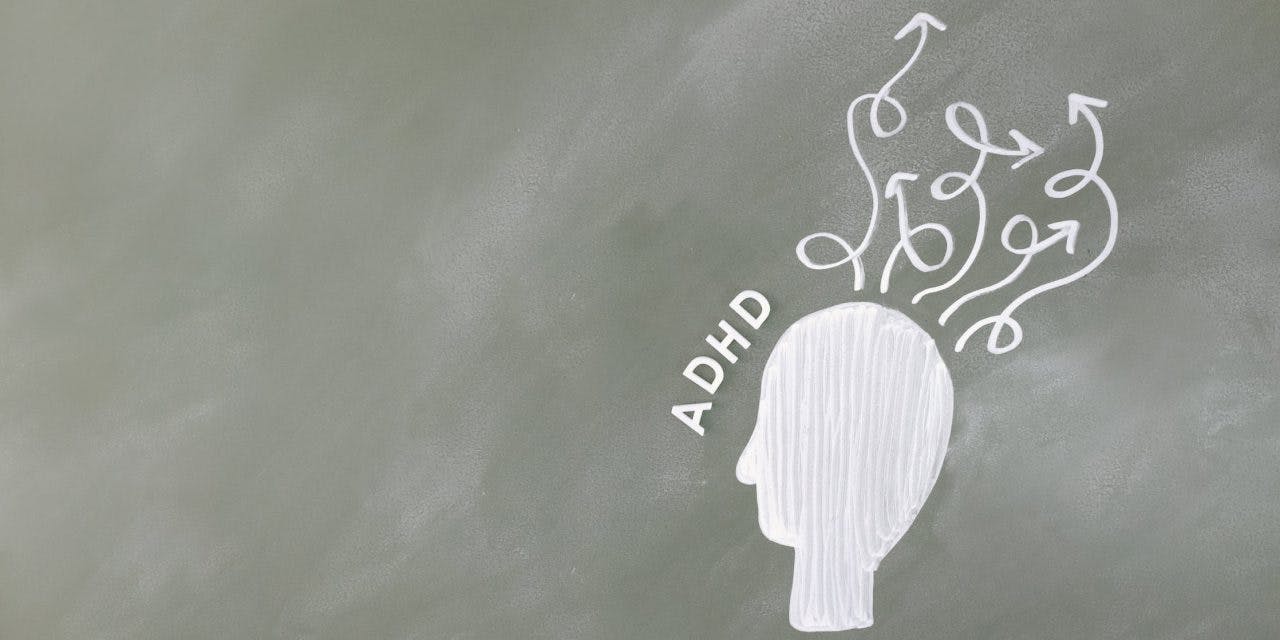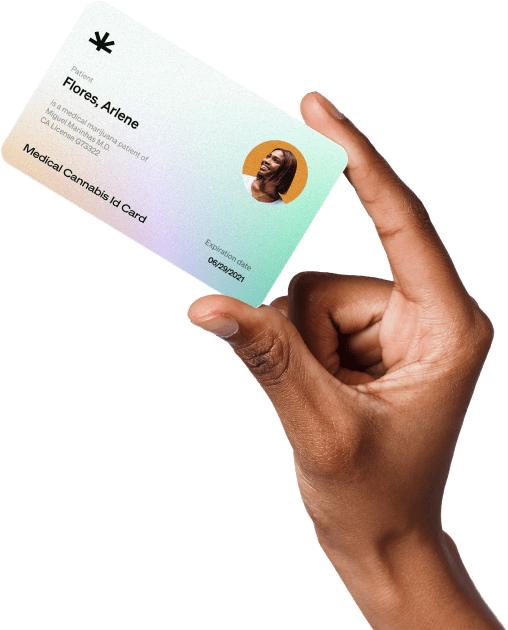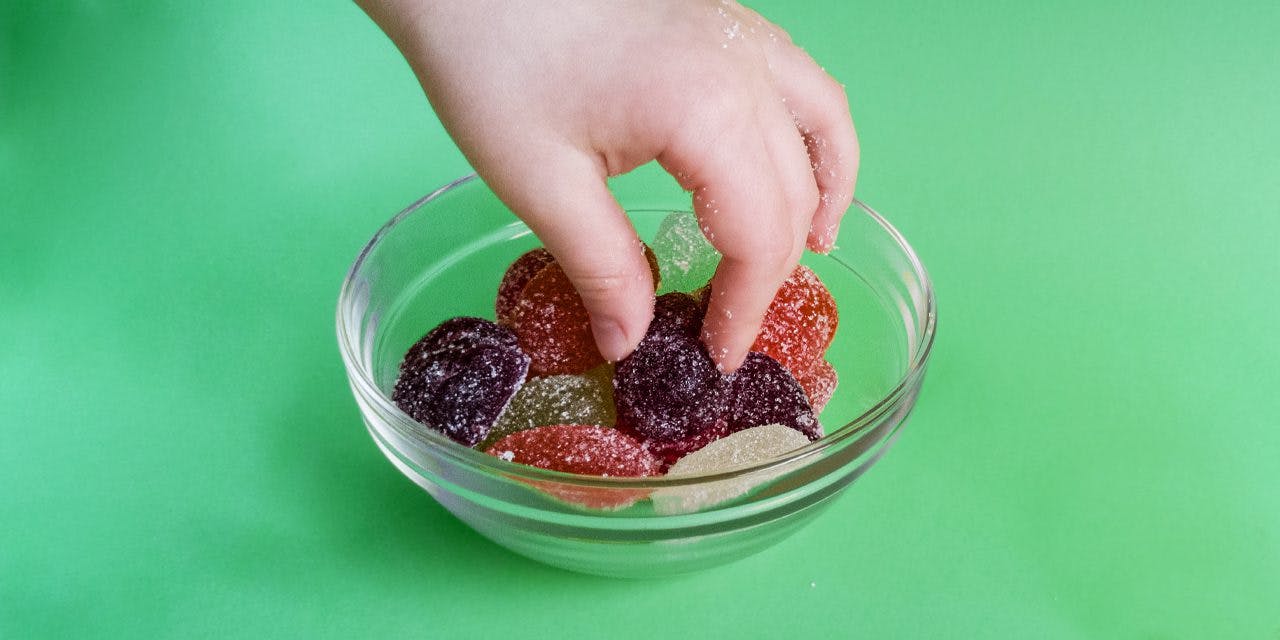ADHD and Marijuana: Does Cannabis Make ADHD Worse?

Article written by
Elena Schmidt
Content reviewed by

Dr. Lewis JasseyMedical Director - Pediatric Medicine
An increasing number of ADHD patients are taking advantage of cannabis’s therapeutic effects to manage their ADHD symptoms. Still, when it comes to ADHD and marijuana, there is little research into whether marijuana helps or hurts the symptoms of this common disorder.
While cannabis may work for some, it may potentially worsen symptoms and negatively react with medications. So, if you’re considering using cannabis to manage your ADHD, consult with a medical professional first.
Get Your Medical Card
Connect with a licensed physician online in minutes.
What Is ADHD?
Attention-Deficit Hyperactivity Disorder (ADHD) is a neurodevelopmental disorder affecting millions worldwide. The condition is generally characterized by symptoms such as hyperactivity, impulsivity, and inattention.
ADHD symptoms can affect various aspects of an individual’s life, including academic and work performance, relationships, and overall well-being. People with ADHD may struggle to pay attention, stay focused on tasks, be easily distracted, forgetful, and have difficulty following instructions.
Is ADHD a Qualifying Condition for Medical Marijuana?
Some people with ADHD use alternative treatments such as cannabis to alleviate symptoms. Yet, no state in the United States lists ADHD as a qualifying condition for a medical marijuana patient card. So, ADHD patients may have difficulty accessing medical marijuana through legal means.
Fortunately, some states, like New York, have broad language in their medical marijuana programs, allowing practitioners to recommend medical cannabis for any condition, including ADHD.
Additionally, ADHD patients may receive a medical card for common comorbidities — conditions that frequently appear alongside each other — including anxiety, depression, sensory processing disorder, and other learning disabilities. Typical medications include stimulants, antidepressants, and SNRIs like atomoxetine, many of which have adverse side effects like anxiety, insomnia, irritability, mood swings, appetite loss, headaches, IBS, and dependence.
ADHD patients who want to explore medical cannabis to improve symptoms and reduce pharmaceutical reliance should contact a qualified provider to determine if their condition meets state requirements.
Potential Benefits of Using Cannabis for ADHD
Traditional ADHD treatments, such as ADHD medication, can be effective. However, pharmaceuticals may not work for everyone. And clinical trials suggest that cannabis, mainly THC, may provide relief through its unique internal mechanisms.
THC is the primary psychoactive compound in cannabis. This cannabinoid interacts with receptors throughout the endocannabinoid system (ECS). By binding to CB1 receptors in the nervous system, THC helps the body send chemical signals, balancing mood, cognition, and behavior.
A 2021 study of 1,700 students found that those with ADHD used cannabis to improve their symptoms and lessen adverse effects from medication. No clinical studies support the beneficial effects of cannabis use for ADHD. Still, 25% of posts in an online forum discussion on cannabis use indicated that people with ADHD find marijuana therapeutic.
Potential therapeutic benefits of combining ADHD and marijuana include:
- Potential to cut down on pharmaceuticals: Some people find that cannabis can effectively manage symptoms of ADHD without the unwanted side effects of traditional medications. A 2020 study found that higher-dose consumption of cannabinoids and terpenes is associated with ADHD medication reduction. Still, speaking with a healthcare provider when considering changing any prescribed medication is essential.
- Improved focus: People with ADHD tend to have racing thoughts. ADHD patients report that cannabis can help to slow those thoughts and improve concentration. THC can also produce dopamine-stimulating effects that may increase alertness.
- Improved sleep: Many individuals with ADHD struggle with sleep problems. Preliminary research suggests that cannabidiol (CBD) may have therapeutic potential for treating insomnia. THC can produce sedative effects that may help to promote relaxation and reduce anxiety, decreasing the time it takes to fall asleep; however, THC may impair sleep quality long-term.
- Enhanced mood: Cannabis is known to boost spirits and reduce symptoms of depression by increasing dopamine levels and stimulating other pathways in the brain associated with reward and pleasure. These mood-enhancing effects can benefit adults with ADHD, who are about three times more likely to experience depression than the general population.
Potential Risks and Side Effects
Pairing an ADHD diagnosis with marijuana use can pose risks and drawbacks, particularly if misused. Here are some of the potential risks and negative effects to consider when combining ADHD and marijuana:
- Interference with medication: Some research shows that ADHD medication, including methylphenidate (e.g., Ritalin, Concerta), can react with cannabis and cause increased strain on the heart. ADHD patients should always consult their doctor about cannabis to ensure it will not adversely affect their treatment plan.
- Increased anxiety: Chronic, high-dose THC cannabis use can cause anxiety, and people with ADHD may be at a higher risk. While some individuals with ADHD use cannabis to manage stress and tension, others could feel worse due to marijuana consumption.
- Cannabis use disorder (CUD): Due to low levels of the neurotransmitter dopamine, those with ADHD are prone to reward-seeking behavior, which can lead to the overuse of certain types of medication, including cannabis.
- Dry mouth (cottonmouth): THC-rich cannabis can inhibit saliva production. Those using stimulant medications alongside medical cannabis may find the effects exacerbated, which can worsen dental health.
Best Strains for ADHD
The decision to use cannabis to treat symptoms of ADHD is ultimately a personal one that you should ideally make with a trusted physician. While some may find that cannabis helps them manage symptoms, others with anxiety or substance abuse disorders may want to avoid it.
Choosing the right cannabis strain (i.e., chemovar) is vital for individuals with ADHD who are considering implementing cannabis as part of their routine. Some strains can effectively manage specific symptoms, while others may result in unwanted anxiety. Strains affect everyone differently, but the varieties below may be a great starting point for ADHD symptoms.
Sour Diesel
Sour Diesel is a popular cannabis strain known for its energizing and uplifting effects. It is often recommended for people with ADHD because it can help improve focus and boost mood. Sour diesel has a relatively high THC content. So it may be advisable for people with anxiety to use a small amount of Sour Diesel and supplement with CBD to balance the effects.
OG Kush
OG Kush is another popular strain amongst those with ADHD. With high levels of the terpene limonene, OG Kush is known for its mood-enhancing and stress-reducing properties. Limonene may also help reduce the intake of stimulant-based medications by regulating dopamine receptor activity.
Black Jack
Black Jack is a strain known for its balanced effects. The high terpinolene, caryophyllene, and ocimene content, combined with low doses of THC, can help improve energy and focus, common challenges for individuals with ADHD. Its myrcene terpene content provides a soothing counterbalance, leaving some people feeling relieved, active, and more creative.
Harle-Tsu
Harle-Tsu is a high-CBD, low-THC strain known for its calming effects, making it a good choice for individuals with ADHD struggling with anxiety or restlessness. Harle-Tsu’s mellow and relaxing effects may also help individuals with ADHD manage stress and promote better sleep.
Patients have reported positive experiences with Sour Diesel, OG Kush, Black Jack, and Harle-Tsu. But one-size-fits-all strains do not exist. Patients should note which cannabinoid and terpene profiles help most and focus on these rather than relying on strain review. Adults should speak with dispensary budtenders, cannabis coaches or consultants, and medical professionals before experimenting with ADHD and marijuana.
The Bottom Line on ADHD and Marijuana
Cannabis use for ADHD symptoms is a complex and controversial topic. There is anecdotal evidence that the plant positively impacts focus, mood, and sleep. Yet there are potential risks that must be considered.
It’s important to consult with a healthcare professional before using medical cannabis products to treat ADHD, especially for those taking prescription medications.
Get Your Medical Card
Connect with a licensed physician online in minutes.



